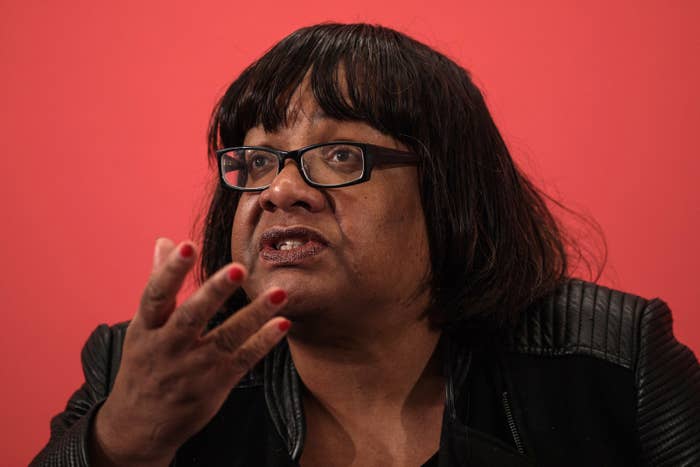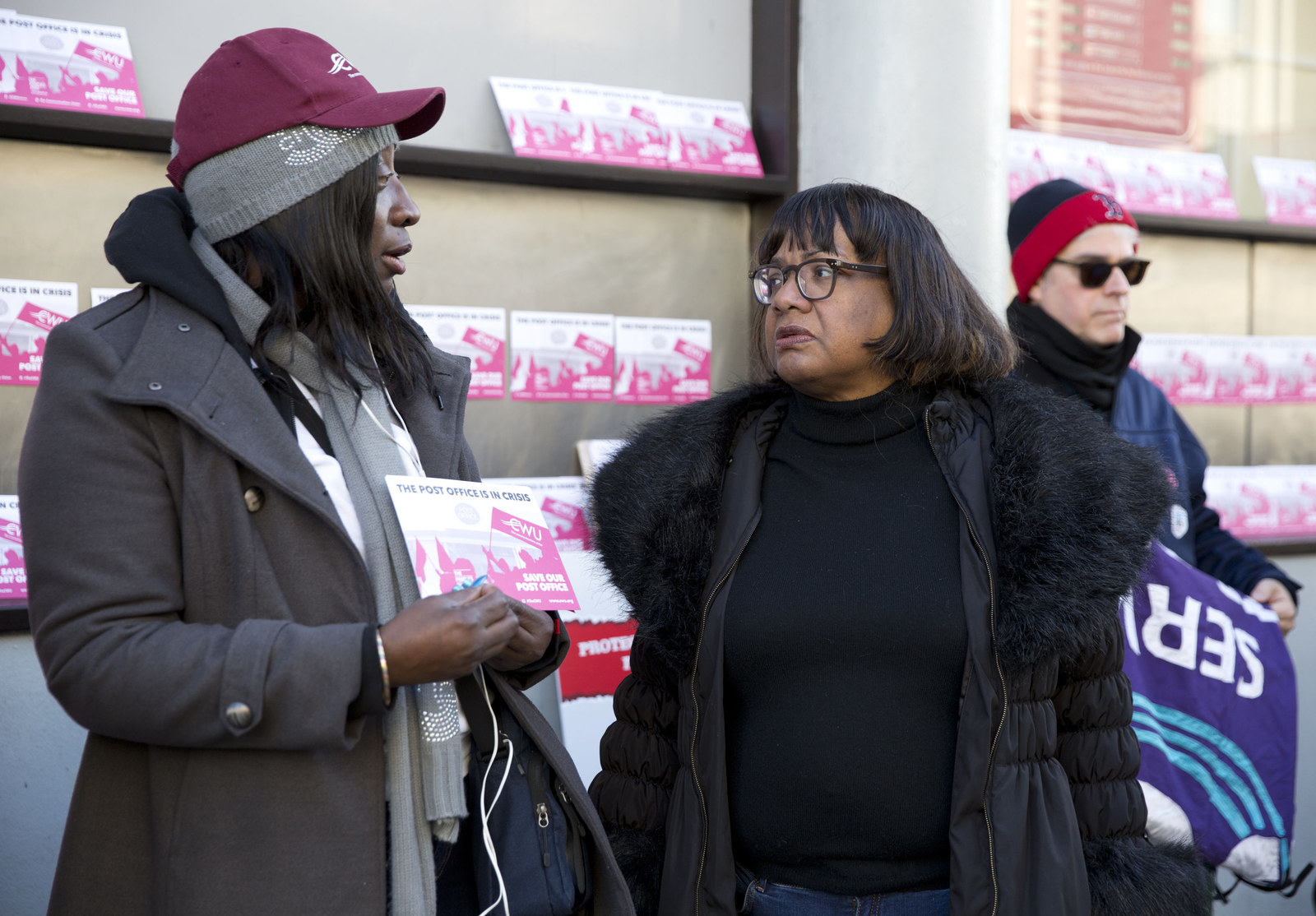
Alexandra Evans doesn't hold back when asked her views on Diane Abbott's decision to vote for the government's Article 50 legislation on Wednesday night.
The resident of the shadow home secretary's Hackney North and Stoke Newington constituency feels let down – by Abbott, but also by Labour, for letting the Brexit bill pass.
"I’m so angry with her," she says, as she waits for a bus on a bitterly cold day in London.
"I think she didn’t have any backbone. She should stand up to Jeremy Corbyn and shouldn’t allow the government to make such a massive statement. I don’t know what he’s playing at."
One might expect Evans' view to be the norm, given the media reaction to Abbott's decision to vote for the government's Brexit legislation – having missed a previous vote amid claims of a sudden migraine – which tended to veer first towards mockery and then questions over whether it would hurt her local popularity.
But when BuzzFeed News spoke to local residents in Abbott's constituency it was apparent that with the exception of a few outlying cases, the reaction to the MP's vote was much more nuanced than the initial coverage would suggest.
Some commentators had claimed that in not following shadow business secretary Clive Lewis and 51 other Labour MPs in rebelling against the party leadership, Abbott had bottled it.
After all, Hackney was the second most pro-Remain area in the entire mainland UK, with 78% of voters backing the pro-EU side in the referendum and an active local political scene filled with people liable to react badly.
However, while some people were contemptuous of Abbott's decision, many more were Remain voters who were still hurting from the referendum but felt there was little that could be done to change the country's march towards Brexit.
“It’s a dangerous thing to start ignoring democratic votes, even if that was done in a way that was very suspect with misinformation," said Rose, who works as an editor and declined to give her second name. "The repercussions later down the line if you’re seen not to go with the winning vote would be a problem.
“I wanted Remain 100% – that’s how I want my country to be. Unfortunately I don’t think my country’s like that. I’m just glad I live in Stoke Newington."

A similar view was held by Sam Campbell, who works in TV. A Labour voter who also backed Remain, he was confused by Abbott's vote but was more angry at Corbyn's leadership.
"When he became leader of the Labour party in general he just made some bad decisions," Campbell said. "That thing on the train when he took the photo – that was a real stupid thing to do. Weirdly, that one moment made me think, What a loser. I’ve got no confidence in him whatsoever.
"I think people will stay loyal to Labour – I don’t think people have any faith in him [Corbyn], but they’ll stay loyal to Diane Abbott.”
Labour is struggling to reconcile its status as a national party with two increasingly polarised bases: one set of constituencies containing urban, diverse Remain voters, and another set of more traditional Labour seats in the Midlands and the North where the public were more likely to back Leave. As Abbott has put it, the party represents "the top six most passionately pro-Leave constituencies, and the six most passionately pro-Remain constituencies".
Inside Hackney's town hall, which regularly has the EU flag flying outside, the borough's newly elected mayor, Philip Glanville, said he understood some of the anger towards Abbott.
A key member of the local Stronger In campaign, he said a pro-EU stance had become a symbolic gesture for many people and a way of projecting their values: "A lot of people have got involved since 2010 in Labour politics. ... For those people it’s not just about Europe, it’s about a set of values around diversity, the environment, human rights, which they tie up in this, so it’s very challenging for them."
He would have voted against the legislation if he'd been an MP, he said, and insisted that Brexit will be "bad for the country, bad for the future of young people". But he dismissed the likes of the Greens and the Lib Dems who attempted to capitalise on pro-EU sentiment.
"We can’t just sit in a London bubble and say that we were right and the rest of the country was wrong. It’s very easy for people who have seats which voted strongly Remain to stand up for those values, and that’s what people want to see. But if you’re leading a national party it’s much more complicated than that."
Instead, he said the party needed to focus on issues such as Hackney's housing crisis and jobs for school leavers, because ultimately it's the disillusionment with established party politics over its ability to solve local issues that poses a bigger risk to Labour in areas such as Hackney than an EU-related uprising.
Outside a church in Abbott's constituency, Wayne Adams, a 53-year-old Leave-voting son of Caribbean immigrants, said the referendum was the first time he had ever been in a polling station. He also pledged it would be the last. His contempt isn't directed towards Abbott or her decision to vote on a specific piece of legislation. For him, the problem is the entire political system.
“I was born here, I have gone through a struggle to get here, England has changed, the mindset has changed," he said. "I feel that with so many people coming in and not checking who these people are.
"I tried to speak to Diane 10 years ago and she basically thought I was going to accost her and ran across the road. She didn’t seem to want to talk to me. She’s doing her job – she’s a very intelligent woman – but I think of parliament as a playground of the Oxford and Cambridge university boys."
